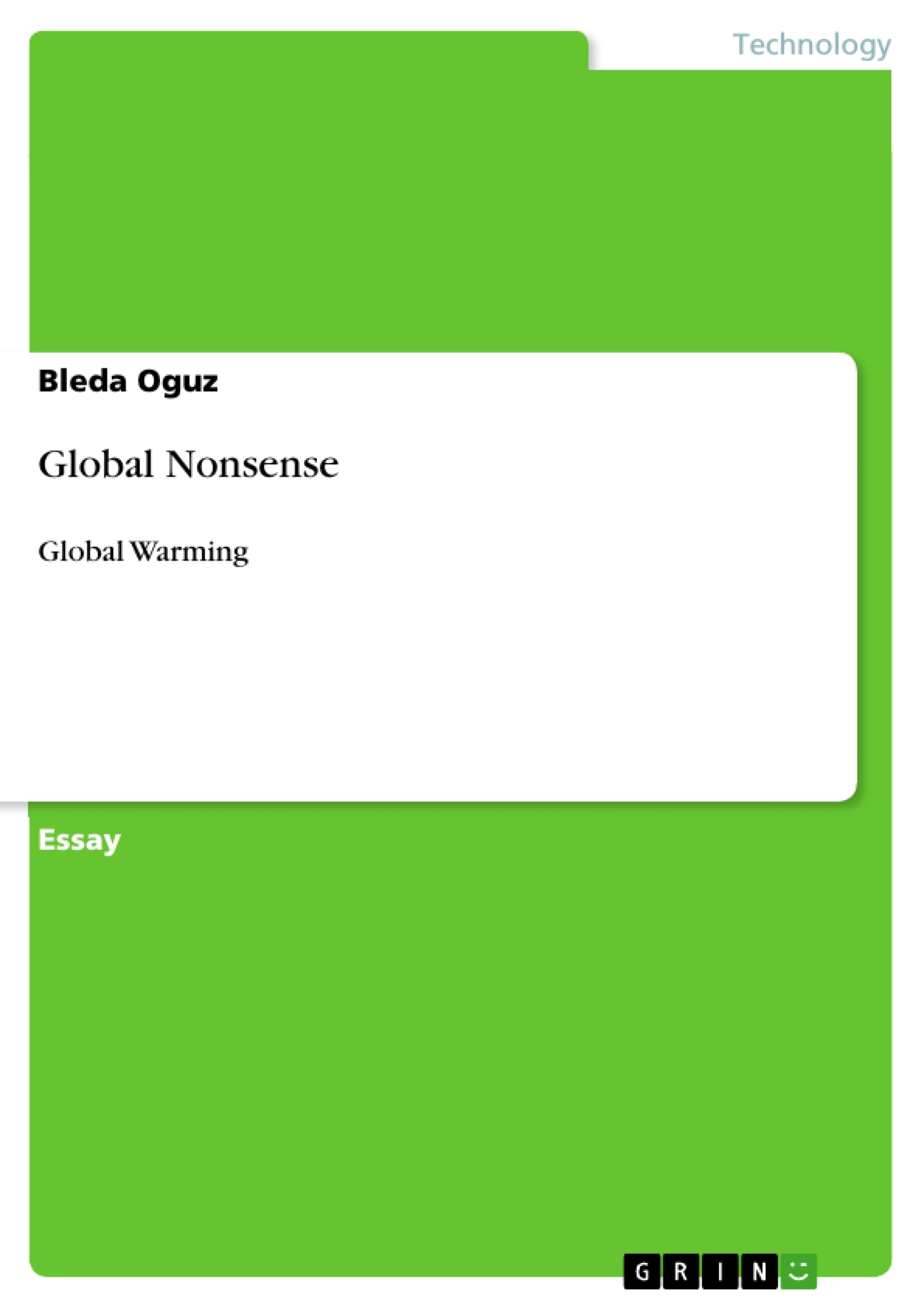"People used to believe whatever church said in Europe, it was Middle Ages people were uneducated, now it is 21th century and people believe in without a shadow of a doubt whatever scientists and doctors say. People have been enlightened and got more intelligent, right? Our habits of questioning haven’t improved, what changed is just the group of people we believe in."
Inhaltsverzeichnis (Table of Contents)
- Global Nonsense
- Manipulation of the Agenda
- The Case of Bottled Water
- Hazelnut Consumption and Government Policy
- The Role of the Press: The Chicken Scare
- Messengers of Authority: Doctors and Scientists
- Blind Faith in Authority
- Global Warming: A Manipulated Agenda?
- The Car Industry and the Recession
- Toyota and the Kyoto Protocol
- The Environmental Impact of Hybrid Cars
- The True Cost of New Cars
- Responsible Consumption vs. Catastrophic Global Warming
- The Future of Global Warming as an Agenda
- Conclusion: Trusting Your Own Mind
Zielsetzung und Themenschwerpunkte (Objectives and Key Themes)
This text aims to analyze how governments and capital manipulate public agendas for their own benefit, using examples from various aspects of modern life. The author argues that many widely accepted narratives, often supported by supposedly trustworthy authorities, are ultimately designed to serve specific economic and political interests.
- Manipulation of public perception through media and authority figures.
- The influence of capital and government on public opinion.
- Critical analysis of narratives surrounding environmental issues, specifically global warming.
- The role of the media in shaping consumer behavior and acceptance of dominant narratives.
- The importance of critical thinking and independent judgment.
Zusammenfassung der Kapitel (Chapter Summaries)
The text begins by introducing the concept of governments and capital manipulating public agendas for their own benefit. It then uses the example of bottled water to illustrate how a seemingly benign product became the norm, despite evidence suggesting tap water is healthier. The author further explores the questionable motives behind government recommendations, such as the promotion of hazelnut consumption, and the media's role in disseminating fear, as seen in the chicken scare. The text highlights how authority figures, like doctors and scientists, are used to lend credibility to these manipulated narratives. The author analyzes the supposed global warming crisis, suggesting that it served to boost the car industry's sales following a recession. The text focuses on the example of Toyota and the Prius, questioning its real environmental benefits. Finally, it emphasizes the environmental impact of constantly replacing cars and advocates for more responsible consumption habits.
Schlüsselwörter (Keywords)
Key terms and concepts explored in this text include: agenda manipulation, capital, government, media influence, public perception, global warming, consumerism, critical thinking, environmental awareness, hybrid cars, Toyota Prius, economic interests, and responsible consumption.
Frequently Asked Questions
How do governments manipulate public agendas?
The text argues that governments and capital use media and authority figures like scientists to shape public opinion for economic or political gain.
What is the "Case of Bottled Water" example?
It illustrates how marketing and perceived authority made bottled water a norm, despite tap water often being healthier and more sustainable.
What is the author's view on Global Warming?
The author suggests that the global warming narrative may be used as a manipulated agenda to boost the car industry and consumer spending.
Are hybrid cars truly better for the environment?
The text questions the environmental impact of hybrid cars like the Prius, emphasizing that the true cost of manufacturing new cars often outweighs their fuel savings.
Why does the text emphasize critical thinking?
The author encourages readers to trust their own minds and question dominant narratives rather than having blind faith in messengers of authority.
- Arbeit zitieren
- Bleda Oguz (Autor:in), 2011, Global Nonsense, München, GRIN Verlag, https://www.hausarbeiten.de/document/182853


